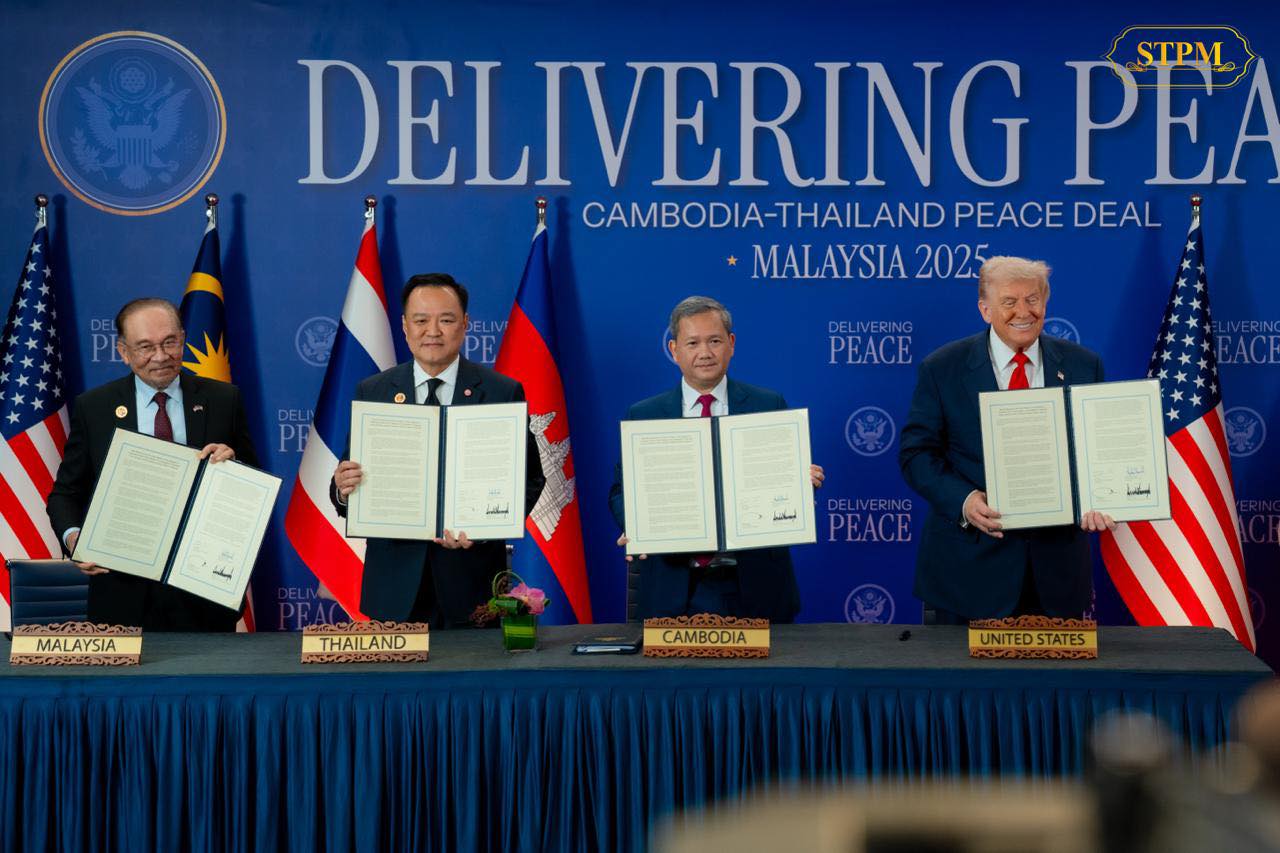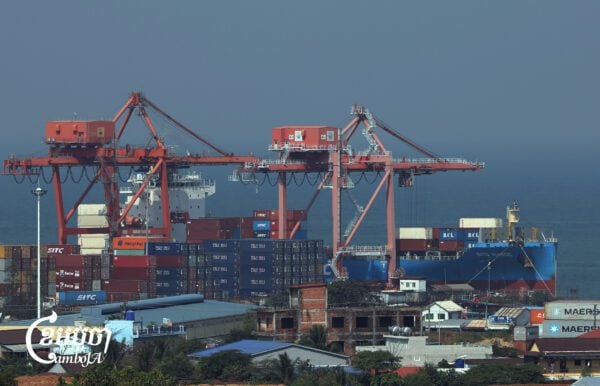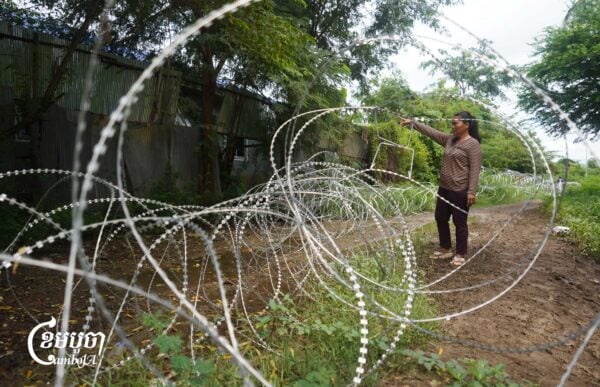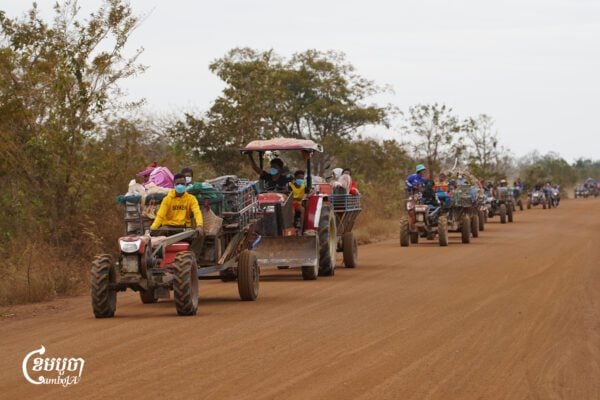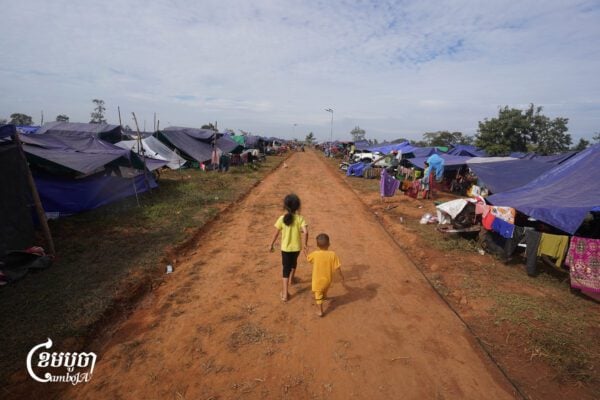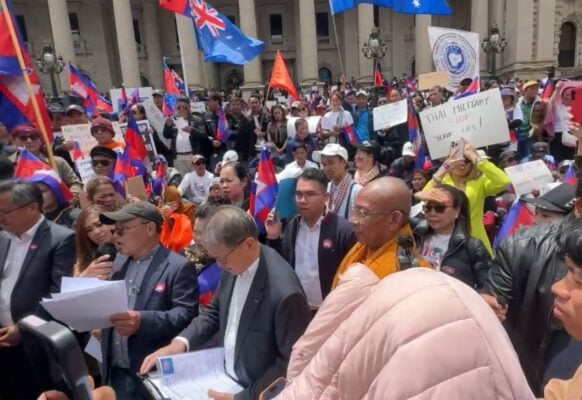Listen to the audio version of this article (generated by AI).
Eighteen Cambodian soldiers remain detained by the Thai military despite the call by US President Donald Trump to Cambodia and Thailand to immediately meet the terms of the joint declaration to end the border conflict; political analysts say that the peace agreement remains fragile.
It has been 93 days since the soldiers were captured by the Thai military within hours of the ceasefire on July 28.
Thai media Bangkok Post quoting Thai army Winthai Suraree reported that the soldiers will be freed if Phnom Penh meets four conditions set by Thailand including the withdrawal of weapons and landmine clearance, suppression of transnational criminal networks, and cooperation on issues affecting border areas.
Families have been waiting for the soldiers following the peace deal in which Thai premier Anutin Charnvirakul said that they would begin processing their return. This followed his signing of the peace deal with Prime Minister Hun Manet at the ASEAN Summit in Kuala Lumpur with Trump and Malaysian Prime Minister Anwar Ibrahim standing as witnesses.
Most of the family members of the soldiers, who were approached, declined to speak to the media. The wife of one soldier, Pek Thorn, only said that everyone is waiting to see him. “All of us are sitting in our rooms waiting for information [about his release]. We have not received any updates.”
Phnom Penh-based geopolitical analyst Seng Vanly mentioned that Cambodia faces a “very difficult reality” despite Anutin’s public acceptance of the agreement, stumped by the Thai military’s refusal to follow through.
“In Cambodia’s view, the most serious problem is not the agreement itself, but the fact that Thai’s civilian government and military do not appear to operate under a common command,” he said
“To Cambodia, the refusal to release the 18 detainees is not a misunderstanding. It is a political message,” Vanly said. He said the Thai army is “reminding” everyone that it controls border security and detention facilities, including operational orders inside the conflict areas.
“This is an unacceptable situation. It violates humanitarian principles, damages bilateral trust, contradicts the Prime Minister’s [Anutin Charnvirakul] statement,” he said, adding that if Thailand cannot enforce a humanitarian deal, then ASEAN diplomats and global partners may lose trust in Bangkok.
Anutin, who was elected in September 2025, leads a government with limited parliamentary support and weak backing from the military. The Thai armed forces remain powerful and independent, and continue to influence national security policy, border management, protest response, and internal politics, Vanly said.
According to the Thai Army, the soldiers were captured while two others were killed on July 29 when fighting broke out near the Sam Tae area in Si Sa Ket province in Thailand, which borders Cambodia’s Preah Vihear province. Initially, 20 Cambodian soldiers were caught but two of them, and the body of a soldier, were returned to Cambodia by Thailand.
On July 31, Cambodia’s military commander Chan Sopheaktra spoke to defense representatives from ASEAN and other countries that Thai forces opened fire first, allegedly ambushing Cambodian troops after both sides agreed to take a photo to mark the ceasefire.
Both Foreign Affairs and International Cooperation Ministry spokesperson Choum Sounry and government spokesperson Pen Bona did not respond.

